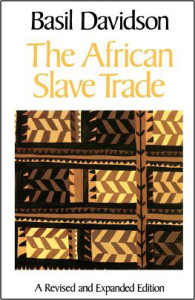by

From the very beginning, Columbus was not on a mission of discovery but of conquest and exploitation. It is time to abolish the holiday commemorating his accomplishments. (Photo: University of Wisconsin-Madison)
Once again this year many schools will pause to commemorate Christopher Columbus. Given everything we know about who Columbus was and what he launched in the Americas, this needs to stop.
Columbus initiated the trans-Atlantic slave trade, in early February 1494, first sending several dozen enslaved Taínos to Spain. Columbus described those he enslaved as "well made and of very good intelligence," and recommended to King Ferdinand and Queen Isabella that taxing slave shipments could help pay for supplies needed in the Indies. A year later, Columbus intensified his efforts to enslave Indigenous people in the Caribbean. He ordered 1,600 Taínos rounded up—people whom Columbus had earlier described as "so full of love and without greed"—and had 550 of the "best males and females," according to one witness, Michele de Cuneo, chained and sent as slaves to Spain. "Of the rest who were left," de Cuneo writes, "the announcement went around that whoever wanted them could take as many as he pleased; and this was done."
Taíno slavery in Spain turned out to be unprofitable, but Columbus later wrote, "Let us in the name of the Holy Trinity go on sending all the slaves that can be sold."
 The eminent historian of Africa, Basil Davidson, also assigns responsibility to Columbus for initiating the African slave trade to the Americas. According to Davidson, the first license granted to send enslaved Africans to the Caribbean was issued by the king and queen in 1501, during Columbus's rule in the Indies, leading Davidson to dub Columbus the "father of the slave trade."
The eminent historian of Africa, Basil Davidson, also assigns responsibility to Columbus for initiating the African slave trade to the Americas. According to Davidson, the first license granted to send enslaved Africans to the Caribbean was issued by the king and queen in 1501, during Columbus's rule in the Indies, leading Davidson to dub Columbus the "father of the slave trade."
From the very beginning, Columbus was not on a mission of discovery but of conquest and exploitation—he called his expeditionla empresa, the enterprise. When slavery did not pay off, Columbus turned to a tribute system, forcing every Taíno, 14 or older, to fill a hawk's bell with gold every three months. If successful, they were safe for another three months. If not, Columbus ordered that Taínos be "punished," by having their hands chopped off, or they were chased down by attack dogs. As the Spanish priest Bartolomé de las Casas wrote, this tribute system was "impossible and intolerable."
And Columbus deserves to be remembered as the first terrorist in the Americas. When resistance mounted to the Spaniards' violence, Columbus sent an armed force to "spread terror among the Indians to show them how strong and powerful the Christians were," according to the Spanish priest Bartolomé de las Casas. In his book Conquest of Paradise, Kirkpatrick Sale describes what happened when Columbus's men encountered a force of Taínos in March of 1495 in a valley on the island of Hispañiola:
The soldiers mowed down dozens with point-blank volleys, loosed the dogs to rip open limbs and bellies, chased fleeing Indians into the bush to skewer them on sword and pike, and [according to Columbus's biographer, his son Fernando] "with God's aid soon gained a complete victory, killing many Indians and capturing others who were also killed."
All this and much more has long been known and documented. As early as 1942 in his Pulitzer Prize winning biography, Admiral of the Ocean Sea, Samuel Eliot Morison wrote that Columbus's policies in the Caribbean led to "complete genocide"—and Morison was a writer who admired Columbus.
Please continue this article here: http://www.commondreams.org/views/2015/10/07/time-abolish-columbus-day
No comments:
Post a Comment